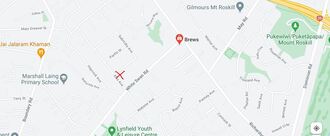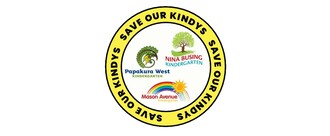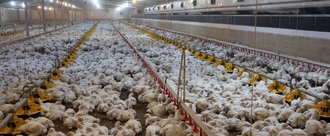-
Enable sustainable community focused housing over disconnected housing developmentsOur concerns aren't isolated but sit amongst a greater context of unease. Other communities in Christchurch are confronted with the same problems and concerns as ourselves, e.g. We are affiliated with groups around the country who advocate for community focused housing including; https://www.commonground.net.nz/?r_done=1 Our shared vision is thriving communities of connected people in healthy ecosystems within a vibrant local economy. Many people who hold this neighbourhood dear to their hearts are community builders who work at creating more connections between people. What we propose is the possibility of being intentional with the design of 74 Domain Terrace. It is possible to design a housing development that creates a diverse community attractive to people from a range of ages with a variety of skills and strengths. This has the possibility of becoming an “intentional community’ where members/residents communicate with and care for each other. Such a community would be inclusive of all and everyone’s needs. The elderly need not feel isolated, and young families could experience support around them for raising children in a whanau friendly environment. Imagine creating a village to wrap around our children and the most vulnerable. Our environmental concerns are just as important to developing a flourishing community as our concerns for people. Care for the land on which we live is integral to our goals. Hence our plea for the trees and the ecological communities that they sustain. Dr Colin Merck, locally renowned ecological scientist, has conducted urban biodiversity studies in this area. https://www.linkedin.com/in/colin-meurk-1284329/?originalSubdomain=nz The trees make a significant contribution to an unusually diverse range of bird life. Local residents, some seasonal, include little owls, kingfishers, bellbirds, fantails, grey warblers, paradise ducks, greenfinches, chaffinches, magpies, spur winged plovers as well as a large population of blackbirds and more common varieties like the sparrow, thrush and starling. Not forgetting the much-loved Avon hybrid ducks. The topsoil of 74 Domain Terrace is precious. The property was originally a chicken farm. The soil has never been turned or sprayed. It has supported a range of animals for many decades. Most recently horses, sheep, free range chickens and rabbits. As such it is extremely fertile and likely to be supporting populations of the foot long native worm and leaf veined slugs as does the adjoining property at 80 Domain Terrace. To leave this taonga solely in the hands of developers is to sign a death warrant for so much. Within 24 hours of the auction an arborist entered the property, without the permission of the residents, to establish a quote for the removal of the trees. The loss of the trees will have a huge impact on the local environment and community. Without these particular trees, in which they currently roost, the little owls are unlikely to relocate and will inevitably die. IT is these trees that resulted in Domain Terrace being nominated as one of the ten most beautiful autumn streets in the city. Destruction of the trees on this prominent bend would destroy the whole ambience of the street and the balance of vegetation between The Domain and privately owned land. As with all similar developments the topsoil will be excavated and stripped depriving the property of an entire ecosystem. Most importantly what will die is POSSIBILITY. The possibility of developing housing solutions in partnership with diverse stakeholders that meet the social, ecological, cultural, and economic needs of the people living there. Our desire is to have the housing company discuss their plans with the community and collaborate on what type of development best contributes to creating a sense of connection and wellbeing within the community. If the housing company can’t see sufficient profit from plans that meet the community’s needs a collective of residents is willing to buy the property back at cost price and become the principal actors of the change they want to see happening democratically in their neighbourhood. Sign our petition to have our voices heard by the Christchurch City Council. Help stop the development that threatens our neighbourhood character and values. Help bring forth a true community focused sustainable housing alternative from the competitive housing crisis which builds up the inequalities that ravage our country. PLEASE SIGN OUR PETITION! https://our.actionstation.org.nz/petitions/community-focused-housing-on-domain-tce Watch this space! It is our intention to oppose similar disconnected housing developments in the area in our quest for a more workable, holistic living environment for all our residents.289 of 300 SignaturesCreated by ANTOINE HOULE
-
NZ Sign Language Accessibility to Commemoration, Anniversaries & FestivalsDeaf people need access to NZSL Interpreters to communicate with friends, whānau, stall holders, at public events. Formal NZSL interpreting at these events means Deaf people can follow the proceedings, speeches given by dignitaries, and participate too. Not having access excludes Deaf people from participating in commemoration events fully. This could be anything from wanting to know more about the products being sold by stall holders to having a catch up conversation with friends & whanau one meets at these events, engaging in discussions on matters pertaining to the event itself with other attendees.503 of 600 SignaturesCreated by Deaf Action

-
Tairawhiti support for the establishment of Māori WardsWhanau and friends of Tūranga-nui-a-Kiwa/Gisborne invite you to sign this petition to show you care about meaningful and effective Māori/Pākehā partnership in local government in Aotearoa. Recently the GDC voted unanimously to establish Māori wards. http://www.gisborneherald.co.nz/local-news/20201124/maori-wards/ Historically Māori have not had fair representation at the decision-making table. We now have an opportunity to have equitable Māori representation at a local government level. However, there is a racist clause in legislation. If 5% of registered voters decide they don't want Māori wards, the GDC will be forced into a referendum which will cost our community thousands and will impact the mana of our community. While those against this are gathering momentum to block the establishment of the Ward we can counter the spread of racist ideology through the aroha in this petition. We are a small group of Pakeha, everyday citizens who want to provide support to our Treaty partners and encourage others to do the same. We acknowledge the hard mahi of Tangata Whenua and locals who have been fighting for the establishment of Māori wards. We hope this petition can tautoko te mahi and let you know we are with you. Please sign this petition to show the GDC and councils nationwide that we support the establishment of a Māori Ward and value on-going work of building relationships with our Māori community!712 of 800 SignaturesCreated by Aimee Milne
-
Give the Waikeria Uprising protesters food and waterThe way the Department of Corrections is currently handling the Waikeria Uprising breaches the human rights of these protesters. As human beings, the protesters deserve food and water. Currently, Corrections is denying them this and won't allow anyone in to deliver these basic needs. It would be an important sign of good faith to the protesters if they are granted this basic human right. Is New Zealand a country that starves people who are protesting for basic human rights?8,782 of 9,000 SignaturesCreated by People Against Prisons Aotearoa

-
Make Waka Ama an Olympic sportWaka ama is significantly and widely practiced in new zealand, tahiti and hawai'i. The level of competition is high throughout Te Moana Nui a Kiwa and the sport is still going strong despite Covid-19. There is cultural recognition of mana in the sport, outrigger canoe racing is a competitive and dominant sport, widely seen as good spectating friendly, the skill and technique is robust hard and fast, power and speed. Races: Midgets: W6 250m Intermediates: W6 500m straight & W6 500m turns / W1 500m & W1 250m dash J16s: W6 1000m turns & W6 500m straight / W1 500m & W1 250m dash J19s: W6 1000m turns & W6 500m straight / W1 500m & W1 250m dash Opens: W6 1000m turns & W6 500m straights / W1 500m & W1 250m dash Masters: W6 1000m turns & W6 500m straights / W1 500m & W1 250m dash29 of 100 SignaturesCreated by Pareoranga Te Kata

-
Retain Media Studies at NCEA Level 1Given that the recent coronavirus pandemic has revealed glaring gaps in media literacy and has forced a massive increase in media consumption, the fact that a subject specifically designed to inform young people about this in a more comprehensive and subject-specific way than other "traditional subjects" is being removed is only likely to intensify this. Chris Hipkins himself complained about the misinformation going around so the fact that his Ministry is doing this implies that either he isn't sincere about solving the problem or lacks the foresight required to do so. To be clear, this is not to demean the subjects that were retained such as History or Geography (many Media Teachers would have taught one or the other at some point in their careers) or to place Media above other subjects that were removed, but rather a criticism of the narrowing of the choices available for our learners in a world where new disciplines are created at a regular basis. While their own media release claims "Feedback from thousands of stakeholders was factored into the Level 1 subject changes, which will be introduced from 2023" it is clear that this decision ignored the feedback from a sizeable number of Media teachers. Their suggestion that these subjects are taught as contexts for Social Studies (or English) comes with a number of flaws: 1) if the proposed changes to English and Science are any indication, then it's very likely that it will be difficult to form a Media Studies course without having to force students to severely narrow their choices of Social Sciences. How will they be able to do this if standards have to be reused across courses? All that this will achieve is more competition and conflict between teachers of these subjects. 2) Media Studies itself blends specific content knowledge with theory and concepts ranging from economics, sociology, psychology, literary theory, audience theories and so much more, meaning that to pigeonhole it as just another version of another subject is to heavily dilute it. 3) the numbers that many Media Studies departments have spent years trying to build are likely to drop and the broad and varied nature of NZ education is going to be watered down by this attempt to pick and choose the important foundations that our students need to function in the modern world. So to sum up: if you think that it's important for our learners to be able to learn early on about the media that surrounds them, then sign this petition.511 of 600 SignaturesCreated by B Uy
-
No Bottle Store on Ellis AvenueAlcohol Healthwatch estimates alcohol-related harm in New Zealand costs $14.5m each day. The brunt is disproportionately on youth, Maori and Pasifika in our communities, and there is a link between high density of off-licences and the heavier drinking patterns that result in much of the harm. Harm includes the health of the drinker themselves, such as increased rates of cancer and fetal alcohol syndrome, as well as harm to others, with alcohol playing a direct or indirect role in many fire fatalities, drownings, suicide and self-inflicted harm deaths, and the growing road toll. 43% of all alcohol is sold from off-licences, like the one proposed. This new bottle store would increase the amount of alcohol in our community when we need to limit supply, and in particular reduce sales from off-licences where the liquor is then consumed in unsupervised circumstances (in contrast with on-licences). Local schools and parks end up vandalised and littered with broken glass, as people drink alcohol purchased at bottle shops in public despite liquor bans. Resources of both council and schools have to be used to clean up the mess, when some of it could be avoided by reducing the sale of alcohol in the area. Finally, the District Licensing Committee process allows people to make submissions to object to the application, and this petition is an important opportunity for those who can't make a submission to still be able to show their opposition. It is possible there will also be a hearing on this application, particularly if the petition is signed by a lot of locals, which will provide another opportunity for the local community to have a say.240 of 300 SignaturesCreated by Julie Fairey
-
Save Our Kindys – Keep The Kindergarten Experience Alive!This petition is to demonstrate that the operational changes to be made to Mason Avenue Kindergarten, Nina Busing Kindergarten and Papakura West Kindergarten are not supported by families and the community. The Counties Manukau Kindergarten Association (CMKA) have been rolling out operational changes to all the kindergartens, which has resulted in the loss of the traditional kindy model. If this is not stopped, the last three kindergartens yet to change will be open from 8am – 3:30pm/5pm and will operate throughout the school holidays. Key points: • The quality of teaching and learning will be negatively affected by these operational changes. • Introducing multiple sessions and flexible drop off and pick up times will change the structure and create an unsettling environment for children. • Parents send their children to kindergarten to receive high quality early childhood education under a play based model that reflects the school day. • Longer hours for children - we believe the six hour session time of 8:30am – 2:30pm is long enough for 3-5 year olds. Current research supports this. • The kindergarten will be required to fill the spots for the extra hours so that funding is maximised. • Children need the holidays to rest and recharge, as do the teachers. • Kindergartens have long attracted high quality teachers and risk losing their staff due to unfavourable working conditions. • The choice parents have in regards to early childhood education is removed. A traditional kindergarten is different from a privatised daycare model. There are numerous other childcare centres in Franklin that have longer opening hours and availability during term breaks. • There will no longer be term breaks and fee paying families must continue to pay, regardless of whether their child attends or not. We strongly believe these changes are not in the best interests of our children and community. We propose that the CMKA responds to the community and Mason Avenue Kindergarten, Nina Busing Kindergarten and Papakura West Kindergarten continue to operate as a traditional kindergarten by keeping the current hours of 8:30am – 2:30pm and not operating during term breaks. These three centres are considered highly functioning kindergartens with large waitlists, active parent communities and strong fundraising capabilities - why fix something that isn’t broken? We will deliver the petition directly to CMKA CEO Calmar Ulberg and The Board of Management.727 of 800 SignaturesCreated by Jody Christie
-
Immediate investment in Kāpiti Youth SupportYouth One Stop Shops are designed to meet the specific needs of children and young people. It is time KYS (as a Youth One Stop Shop) was funded through an integrated and sustainable funding model that allows them to deliver the health, mental health and social services our young citizens need. The current siloed health, mental health and social service funding models mean KYS are is constantly chasing contracts and funding, which is unsustainable. Funding must ensure that services continue to be free. Cost barriers lead to the most vulnerable children and young people missing out on services. Free services remove barriers and ensure more equitable access for young people. Youth One Stop Shops, including KYS, are an expert voice on youth health and wellbeing. KYS delivers a range of health and social services under one roof. This co-location means they are able to meet the full range of needs a young person has, in a holistic and integrated way, as recommended in a recent review of the health system. However, their current ad hoc and short-term funding contracts (along with limited private donations) means they have unstable income streams. This makes it impossible to take a long-term approach to plan or to coordinate the resources necessary to support our young people in Kāpiti or expand their reach.5,123 of 6,000 SignaturesCreated by Sophie Handford
-
Open Letter: Income support must go up before ChristmasNo matter who we are or where we live, we know that our wellbeing is interconnected with those around us. When everyone has what they need to look after themselves and fully participate in their communities, we all flourish. We all want every child in Aotearoa to experience a thriving and happy childhood. But right now, hundreds of thousands of children are constrained by poverty, despite parents’ best efforts. We’ve had a long period of low wages and high housing costs. For decades, governments have underinvested in key public services that build well-being in all our communities, like public housing and income support. Many governments have prioritised policies that help the already well-off, including people who make money from housing. As a result, too many parents are under-resourced, overstressed, and unable to give their children real opportunities to thrive. Now due to the ongoing COVID-19 economic fallout, more families are being pushed into poverty. Unemployment has risen at a record-breaking pace — increasing by nearly a third in the three months to September. Foodbanks and youth homelessness services are reporting huge increases in demand. By Christmas, it’s expected Work and Income will have allocated over 2.5 million hardship grants and advances this year alone. The situation is urgent. As the new government, you can release the growing constraints on individuals, families, and children. We are calling on you to lift one of the biggest limitations on whānau and child wellbeing: not having enough income. During the height of the COVID-19 pandemic, you acted quickly to set up the COVID income relief payment, which is nearly twice the amount of the usual jobseeker benefit. You showed us that you understand that current benefit levels are insufficient and lock families and children into poverty — an issue that affects all of us. Now, we are asking you to apply the same common sense approach to all income support. To make sure everyone, whether they are working, caring for children, living with a disability or illness, learning, or have lost their jobs before or because of COVID-19, has a liveable income. Doing so will help achieve your vision of making Aotearoa the best place to be a child. Before the election, the Labour party has consistently said there’s more work to be done to lift families out of poverty. You now have the mandate and opportunity to do so. Please increase income support before Christmas. Organisations who have signed the open letter are: ActionStation Aotearoa New Zealand Association of Social Workers Auckland Action Against Poverty Auckland City Mission Auckland Women’s Centre Barnardos Belong Aotearoa Beneficiaries & Unwaged Worker Trust Beneficiary Advocacy Services Christchurch Benefit Rights Service Birthright NZ Brainwave Trust Aotearoa CCS Disability Action Child Poverty Action Group Citizens Advice Bureau Community Housing Aotearoa Community Networks Aotearoa Disabled Persons Assembly E Tipu E Rea Whānau Services Equality Network FinCap FIRST Union Gender Justice Collective Gene Now Financial Literacy Trust Generation Zero Heretaunga Women’s Centre Hutt Valley Benefit Education Service Trust (BEST) Kore Hiakai Zero Hunger Collective Lifewise Manaaki Rangatahi Manawatū Tenants’ Union Māngere East Community Centre Māngere East Family Services M.E. Awareness NZ Mental Health Foundation Methodist Alliance Monte Cecilia Housing Trust National Council of Women New Zealand Council of Christian Social Services New Zealand Council of Trade Unions New Zealand Union of Students’ Associations Ngā Tāngata Microfinance NZ Disability Advisory Trust NZ Accessibility Advisory Trust NZEI Te Riu Roa OMEP Aotearoa Pacific Women’s Watch NZ PPTA Public Issues Network: Methodist Church Public Service Association Renters United Salvation Army Save the Children Sisters of Mercy Wiri Social Justice Group of the Auckland Anglican Diocese Social Link St Anne's Pantry St Matthews in the City Te Kupenga Whakaoti Mahi Patunga: National Network of Family Violence Services Te Ngākau Kahukura Tick for Kids Tokona Te Raki United Community Action Network Unite Union Aotearoa Urban Neighbours of Hope VisionWest Waipareira Trust We Are Beneficiaries Wesley Community Action Whānau Āwhina Plunket903 of 1,000 SignaturesCreated by Team ActionStation

-
Stop the Waerenga industrial meat chicken farmChickens farmed for meat have been selectively bred to grow rapidly over a five-six week period before they are slaughtered. At five-six weeks old, they will reach adult weight but they are still baby chicks. This puts incredible stress on their young bodies which struggle under the rapid growth. Many chicks die before even reaching five-six weeks old. Others will suffer lameness due to severe stress on their hip and leg joints, affecting their ability to walk. Buchanan Ellis Ltd want to build a free-range industrial meat chicken farm at Waerenga - however free-range isn't all it's cracked up to be. There are no industry standards or regulations for free-range in New Zealand, only that there must be a potential to access the outdoors. Since most free-range meat chickens are slaughtered at five-six weeks old, the amount of time they have to go outside is only around two-three weeks. In their first few weeks of 'growing' they are shut inside industrial buildings with around 40,000 other meat chickens. In practice, many chickens will never get outside because they have to get past thousands of other chickens to reach ‘pop holes’ to the outdoors. In addition, chickens are hierarchical by nature, meaning dominant chickens will often guard pop holes, denying less dominant chickens outdoor access. The Buchanan Ellis Ltd proposal would see six industrial farm buildings built at the Waerenga site, each containing 43,000 meat chickens. This would see 258,000 meat chickens suffering on site every six week cycle. Over the course of a year around two million meat chickens would be grown at the proposed Buchanan Ellis Ltd factory farm. As well as animal welfare concerns, there is significant community opposition to the Buchanan Ellis Ltd proposal. Locals are concerned that odour and dust levels from the proposed industrial meat chicken farm will negatively impact their homes, health and livelihoods. Increased heavy traffic movements impacting on road safety, appropriate water drainage and effluent disposal and damage to nearby wetlands are also among the community concerns. The application is limited notification, meaning that many of the affected locals and the general public cannot make a submission about the proposed factory farm. Given the significance of the Buchanan Ellis Ltd proposal on the local community and the animal welfare implications, Direct Animal Action believes the application should be publicly notified and, ultimately, that Waikato Regional Council should decline the application.1,565 of 2,000 SignaturesCreated by Direct Animal Action

-
Protect Porirua East!The proposed rules in the District Plan would enable a huge 25 year housing development programme in eastern Porirua. The project will mean over 1000 state homes knocked down, families displaced and private property acquired under the Public Works Act to free up land for property developers. The plan will see an additional 2000 houses for private sale crammed into the geographically small suburbs of Waitangirua and Cannons Creek. The main theme of the proposed district plan is to allow greater housing density, which is needed, but currently it does so in a way that discriminates on social class. Under the proposed plan the generally middle class suburbs become the low density General Residential Zone and the generally working - class suburbs become the medium density residential zone. This means reduced amenities for the east only! The plan in it's current state doesn't go far enough to tackle climate change. Porirua has an empty city centre that has space for apartment style housing that is walking distance to public transport and amenities. This space should be utilised before digging into our green belt. With over 1000 houses set to be demolished in the East we need to ensure that waste is managed and minimised, and the new builds bring an opportunity to used renewable energy sources. We need a Porirua that all people can get around and the community can live in. Our current housing stock doesn't meet the needs of our disabled and ageing whānau. Building new homes and spaces gives us an opportunity to make sure that everyone is adequately housed, can age in place and is able to participate in community. If you want to make your own submission you can do that here: https://poriruacity.govt.nz/your-council/city-planning-and-reporting/district-plan/proposed-district-plan/571 of 600 SignaturesCreated by Housing Action


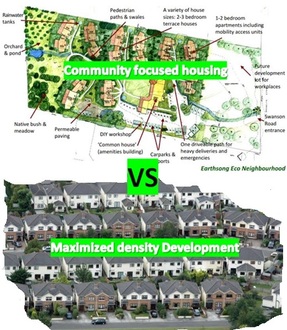

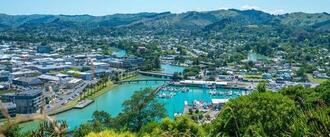.jpeg)



